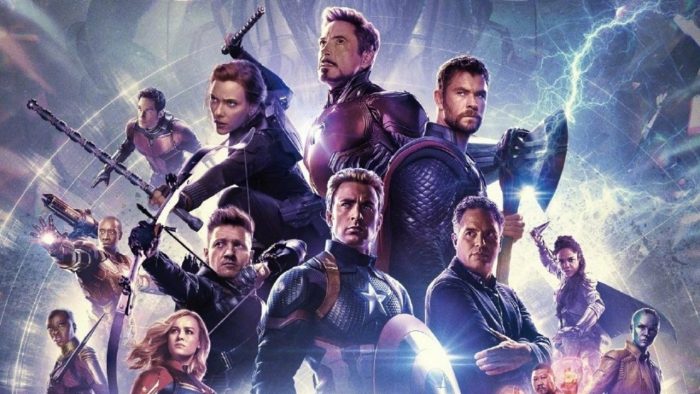So I re-watched Avengers: Endgame at the weekend.
For those of you who have seen it, I’d like to share this little insight; and for those of you who haven’t seen it, this mini blog will make no sense to you. That said, I highly recommend watching it. But then I would say that, because I’m a bit of a sucker for Marvel movies.
Like all good blockbusters, the movie is about many things: time travel, reconciliation, sacrifice, living with failure, longing for love, and the eternal struggle between darkness and light.
But when I first saw the movie at the cinema, I overlooked one of its core themes: gratitude.
Endgame is the concluding part of a two-part feature. In the first part, Avengers: Infinity War, the big baddie, Thanos, uses the ‘infinity stones’ — the ultimate power in the Universe — to destroy half of all living creatures in the cosmos in order to restore balance. Interestingly, for geeks like me, ‘Thanos’ in Greek is a short form of the name ‘Athanasios’, literally meaning ‘immortal’; and the name may also be a derivative of the word ‘thanatos’, meaning death. Both meanings resonate when, in the movie, Thanos claims to be ‘inevitable’.
So the plot of the movie is that the Avengers — a motley crew of super heroes — endeavour to travel back in time to prevent Thanos from annihilating half of the Universe. At the very end, during the epic battle between light and dark, Thanos explains to his adversaries that his hope for destroying half of human life was to inspire our species to build a new, better world than the one before; but he realises that, instead, humans wallowed in their loss and plunged themselves further into darkness and despair. For this reason, Thanos loses all faith in humanity and, with the newly captured infinity stones, seeks to destroy all living creatures on earth.
The harsh message from Thanos is: if we don’t value what we have, then we don’t deserve to have anything.
As the Avengers didn’t stop Thanos in the first movie, we see in Endgame how they come to terms with their failure as well as their dashed dreams: Captain America longs for his lost love; Thor wallows in his inability to live up to his godliness; and Iron Man continues to struggle with acts of selflessness and altruism.
But during their time travel heist to retrieve the infinity stones, our heroes encounter their past, providing them with a renewed perspective on their so-called failings whilst allowing them to find inner peace: so Captain America decides to travel back in time to live a ‘normal’ life with the woman he loves; Iron Man makes peace with his father and learns the value of sacrifice for the greater good; and Thor — after a poignant valediction to his mother — decides to be true to himself rather than living up to ‘who is he supposed to be’.
But despite the inner transformations of the characters, enabling them to become ‘better’ people, the world they seek to save is the very world they lost: when they retrieve the infinity stones to put things right, they do not envisage a ‘better’ world, but rather they seek to restore the equilibrium of what was, unchanged.
And for some reason this message really hit me, for the movie isn’t about overcoming darkness to create a new world or something ‘better’; rather, it is about learning to love and cherish what we already have.
Indeed, as we don’t know when the people we love will be taken from us, we tend to live in ignorance or denial, not only of our own mortality, but of the mortality of others, too. We may sometimes take our selves and each other for granted; but if the world as we know it was taken away, we would give anything to get back what we loved and lost.
Love and gratitude are of the highest energetic vibration on our spectrum of emotions, and Endgame reminds us to be grateful for what and — more importantly — whom we have in our lives: the people we love.









Read 0 comments and reply